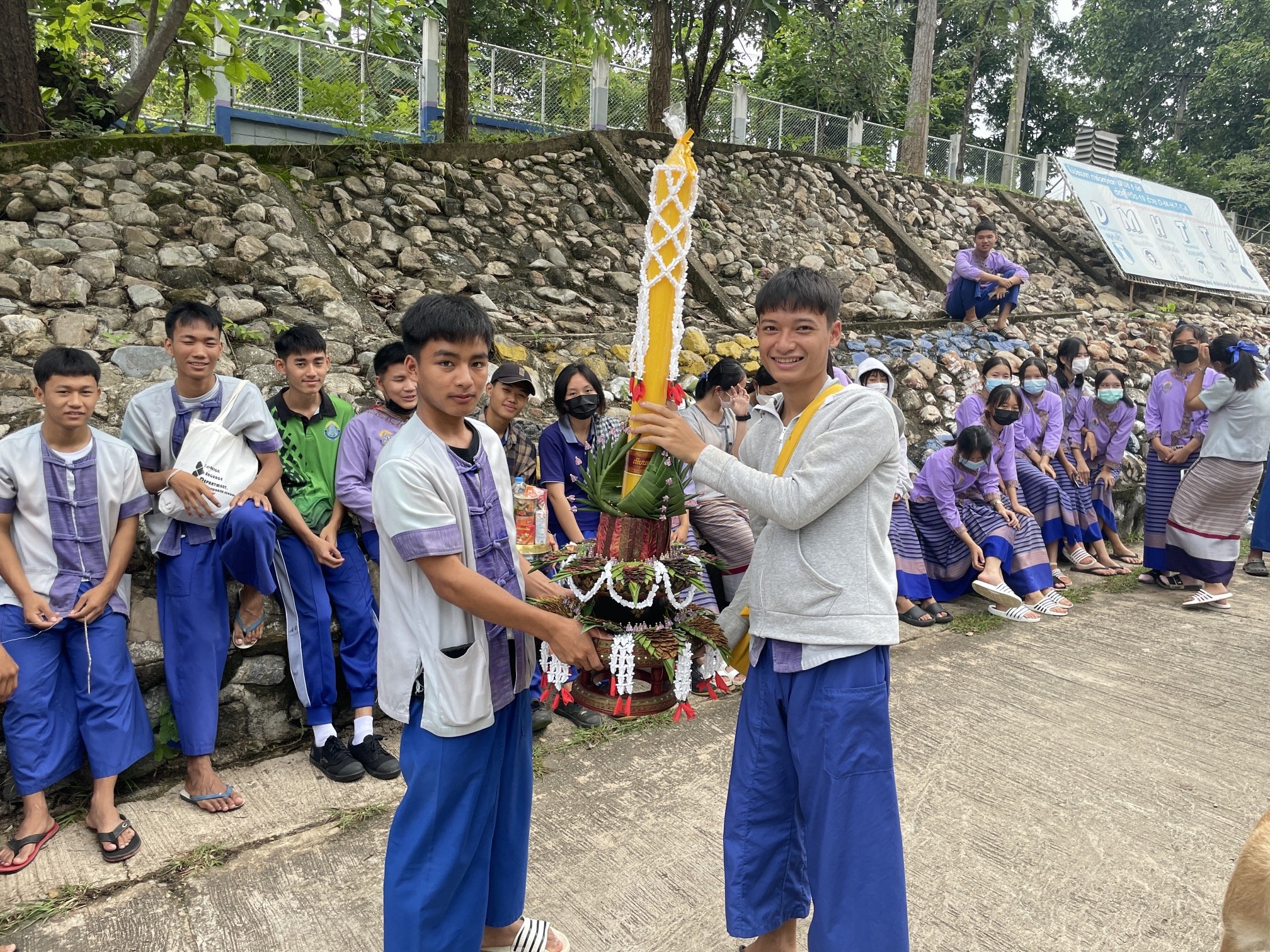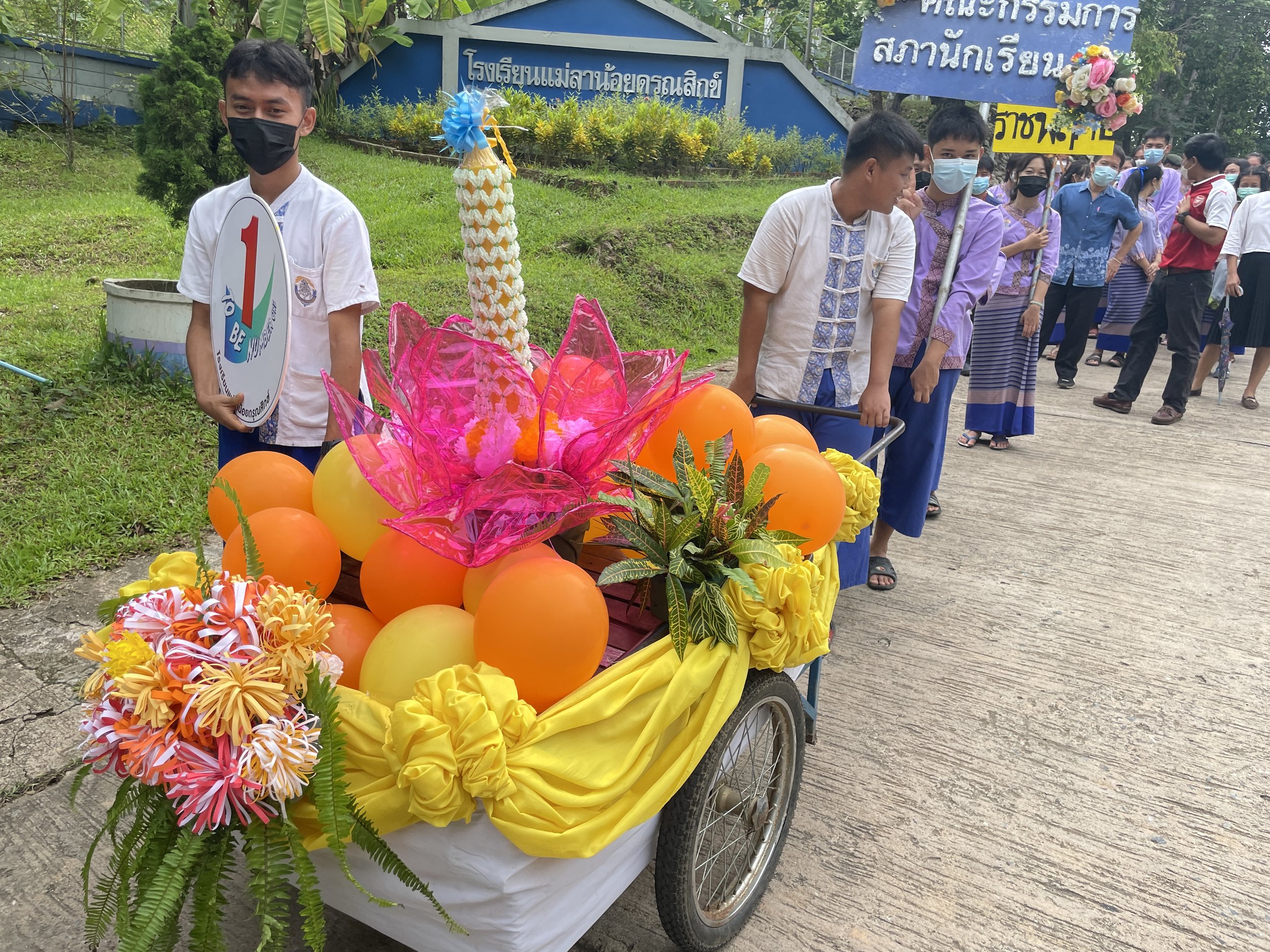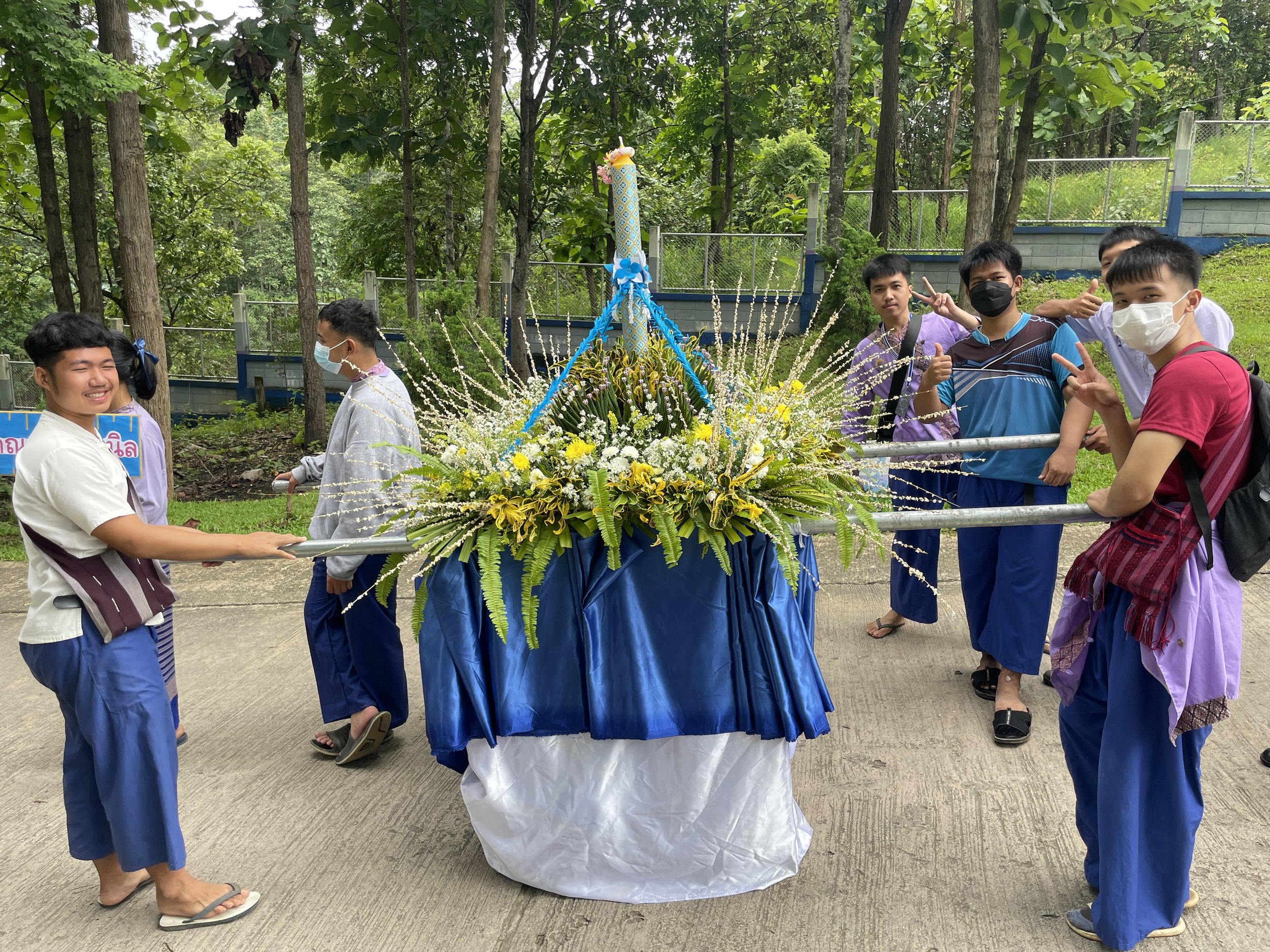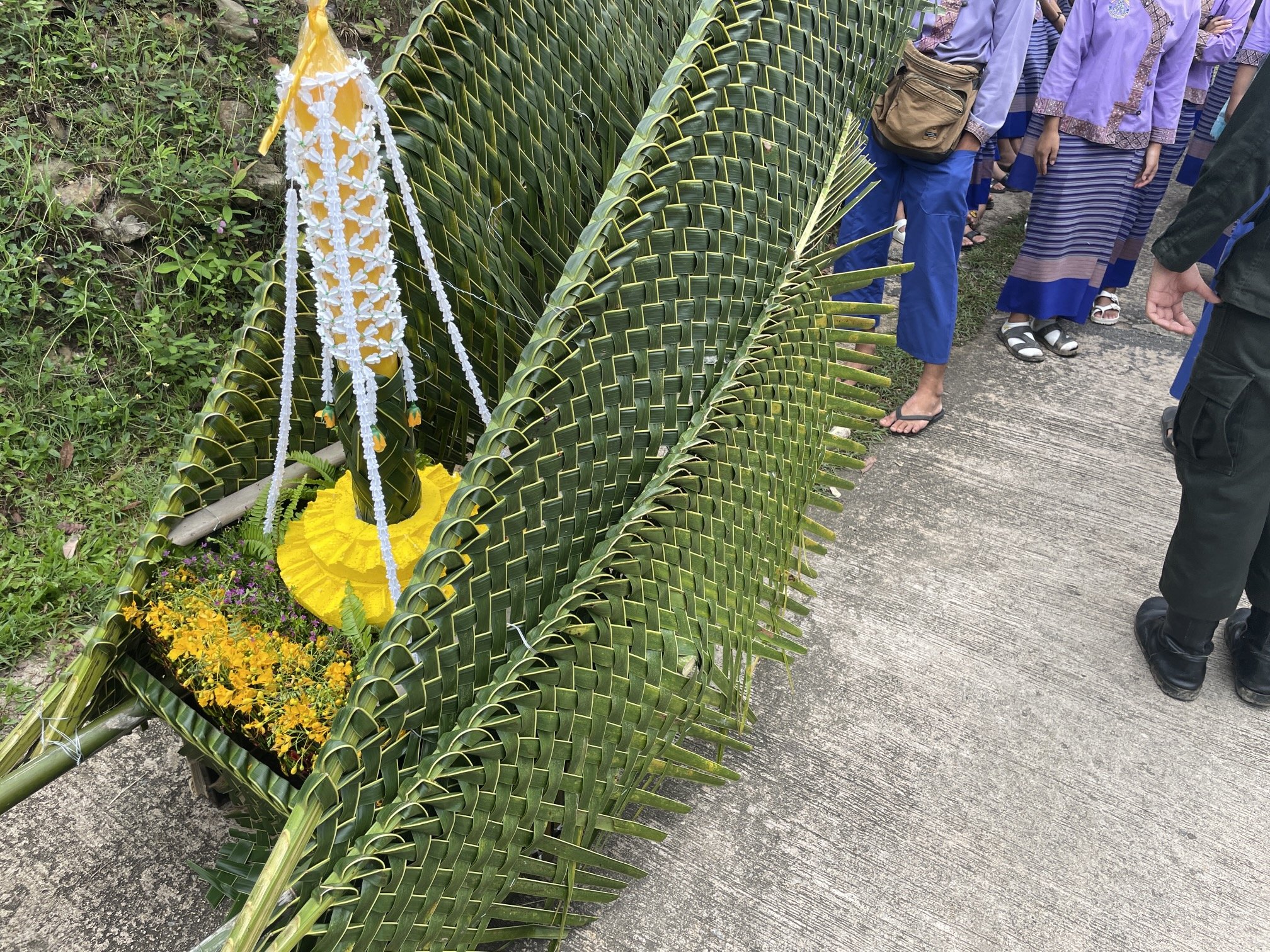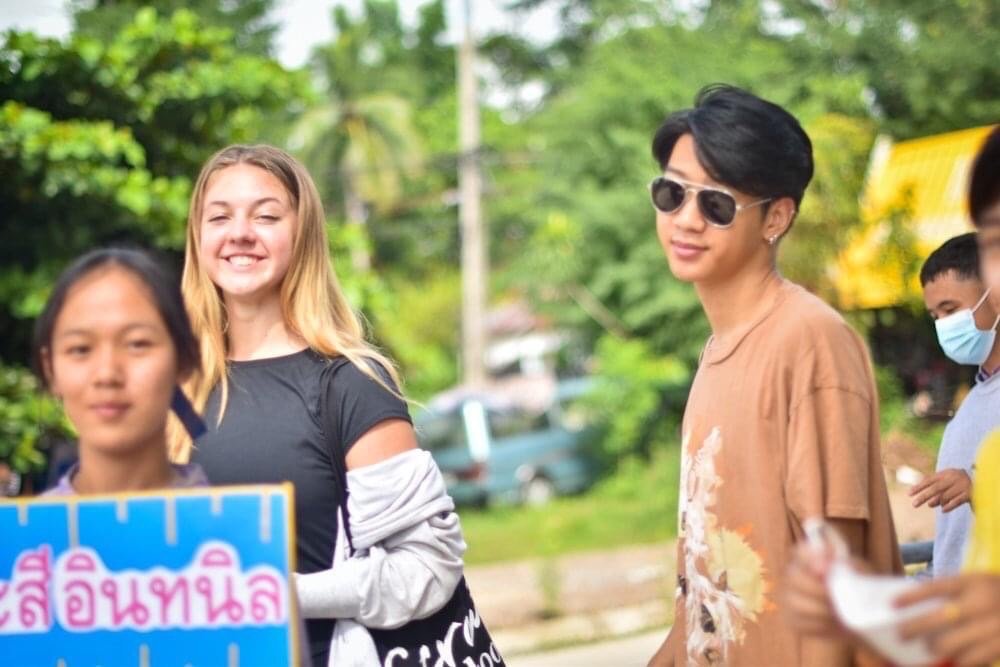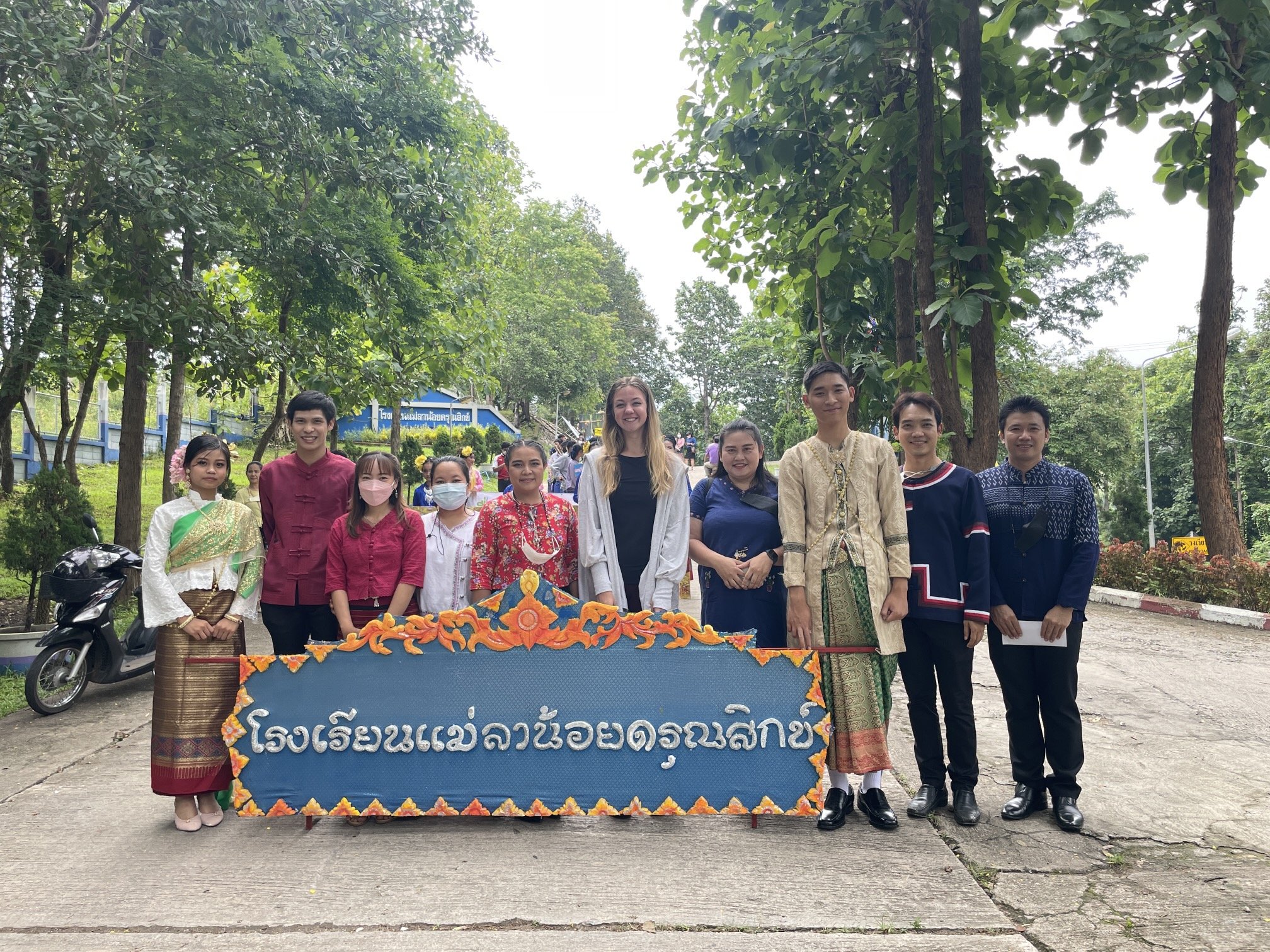Blog Post: A Look at Religion in Mae La Noi by William & Mary Freeman Intern Fellow Josie Massenet
Today (July 14), the students presented their offerings at temples, for Buddhist Lent. Every school in Thailand participates, as students create beautiful sculptures to present for the holiday. Many of the students I have spoken with have admitted a Christian religion, so I conducted further research into the presence of religion in Thai schools. As a result of Educational Acts passed in 1902 and 1918, topics of Buddhism and monarchy must be present in the curriculum of every school, initiating encouragement for the students to participate in Buddhist holidays. Only around 1% of the Thai population is Christian, with this population being more concentrated in Northern Thailand where Mae La Noi Daroonsik school is located.
The traditional school model in Thailand actually came from European Catholic missionaries, dating back to the 16th century. In the development of the modern day Thai education system, religious European structure and knowledge was adopted to allow the presence of modern scientific subjects and western etiquette into schools. The religious aspect of this was neutralized in order to promote ideals of Thai nationalism, endorsing Buddhism instead of Christianity.
Since I arrived in Mae La Noi, I have attended a Buddhist temple with students, as well as two Christian churches. Most members of the Karen hill tribe are of their own sect of Christianity and some other tribes have adopted Catholicism. The Karen churches I attended actually gave their sermon in Karen language. Every student, regardless of religion, participates in the Buddhist Lent celebration.
Religious studies have always been something that piqued my interest, and I am grateful for the opportunity to have immersed myself into the Buddhist celebration. Before I leave, I hope to attend the Catholic Church sermon in Mae Pang, so that I may more directly compare Thai Catholic practices to what I grew up practicing. I hope to incorporate more religious studies classes into my schedule when I return to William & Mary. This is a topic I may choose to research, perhaps examining how state religion affects foreign policy approaches.

